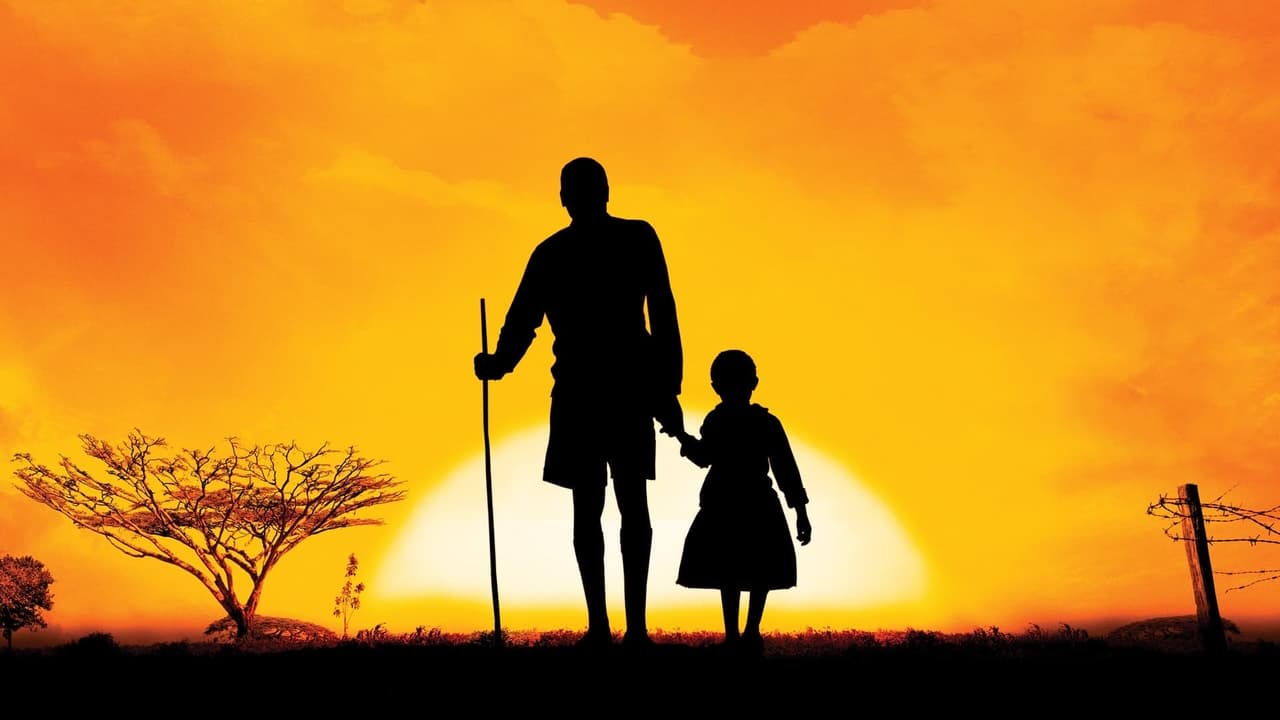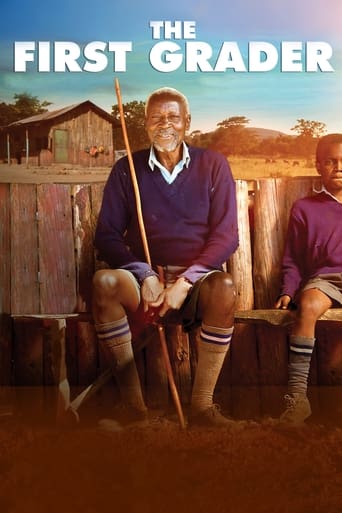Dynamixor
The performances transcend the film's tropes, grounding it in characters that feel more complete than this subgenre often produces.
Sharkflei
Your blood may run cold, but you now find yourself pinioned to the story.
SeeQuant
Blending excellent reporting and strong storytelling, this is a disturbing film truly stranger than fiction
Nicole
I enjoyed watching this film and would recommend other to give it a try , (as I am) but this movie, although enjoyable to watch due to the better than average acting fails to add anything new to its storyline that is all too familiar to these types of movies.
italianredneckgirl
I homeschool my 12 year old daughter. We are eclectic in our curriculum. My daughter is on a grade level with Sophomore students. This film opened our eyes to the struggle happening in Kenya while the British were fighting over land. This is a great follow up movie to The Good Lie. Although completely different storyline, there is a familiarity and almost mirroring between the two films. This story follows Maruge, an 84 year old gentleman who was part of the Mau Mau tribe and taken into custody after his family was brutally murdered before his eyes. Maruge never received an education, as was true for the majority of adults during this time period. The First Grader follows Maruge's struggle to receive an education and learn to read well after his release from the detainee/work camp in 1963. Maruge appeals to adult and teenaged viewers. He is a classic underdog. He is worth rooting for. Jane Obinchu is the primary school teacher in this remote location in Kenya. She's instantly likable. The viewer feels her pull to help Maruge despite her husband's insistence that it will be nothing but trouble. Jane is engaging, endearing, and in the end, a classic heroine. I would recommend this movie to open up lines of communication between yourself and your child. To expose them to real people during a real event that could easily be used as a 'Torchlighters" series. Follow it up or set it up with The Good Lie. Both well done. Both deserving of an audience.
dlibrarian2
One can not argue with true events so you must absorb the plot and then take a look at what is happening today in parts of Africa. The key is still respect for education because it is a threat to peace. The desire to learn is so deep in the main character--which has been a desire in many who did not have the opportunity. The movie also shows that youth can learn from seniors-therefore I would recommend it for middle school and up. I am so pleased to have been at home when this was shown on Showtime and will certainly encourage all literacy volunteers, teachers, and librarians to view it. Hats off to the director and production staff.
selfsimilarity-61803399
Truly a Soul Enriching Journey: the rare piece of Cinema which might just change your interior life... to say much more than this is to take away from what Matters. My Emotional and Spiritual Journey through life is forever Sweetened by this Evocative, true-life story~ it is as if i've learned to find a Hero, all over again, for the first time.i know i can never have anything in common with this man, and yet i feel as though i love him... i would joyfully invite him into my life and would find paradise at his knee listening to him tell the stories of his life... his strength, courage, tenacity, need, and generosity of spirit make me feel shame at being human and find redemption in humanity at the same time. i've gained so much by giving just these few moments to this film, his story will stay with me until the End of Time. If there is a person on earth i admire as much as him, i've yet to meet them.
Alan Hudson
I just saw this film, yesterday, at the Doha Tribeca Film Festival.I think this is the first time that I can say that a film has had a profound affect upon me. It's a fantastic story, and what makes it all the more amazing, as confirmed by Justin Chadwick at the festival, everything you see in the film is true and actually happened.I am not ashamed to admit that I was moved to tears, and these were not tears of joy. Emotionally, this is a heavyweight amongst films.The film also left me not being very proud to be British. It covers, in flash back, a part of our history that I am sure most of my fellow countrymen would wish had never happened.I would strongly recommend that every Britain and every Kenyan watches this film. It will move them all to tears, and teach us all lessons we should not forget for the future.If you do go to watch it, take plenty of handkerchiefs. You'll need them!

